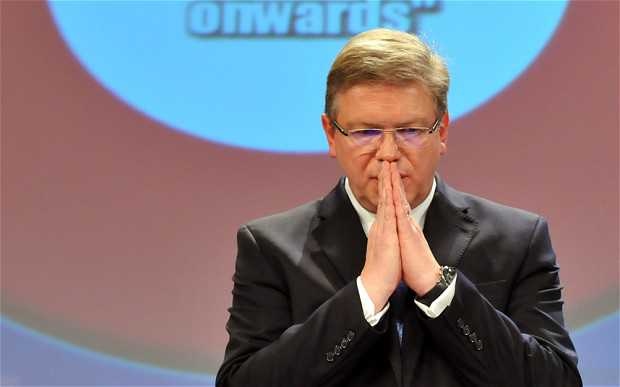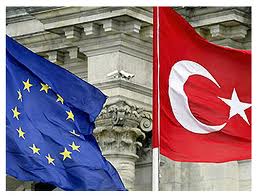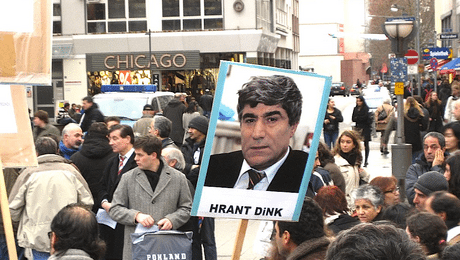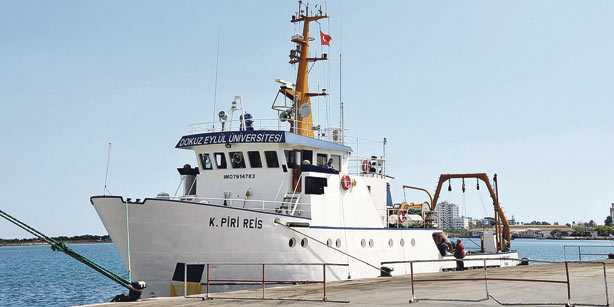By Erdinç Erdem and Çağrı Yıldırım*
Balkanalysis.com Editor’s note: As the year 2012 draws to a close, this new articles look on the major points of contention between the European Union and Turkey, as articulated in the bloc’s October progress report on the country. These issues, primarily related to the judiciary and security sector, look likely to continue to remain vital well after the conclusion of the Cypriot EU presidency.
…………………………………………
On October 10, 2012 the European Commission issued its fifteenth Annual Progress Report on Turkey’s EU accession bid. According to the Progress Report, Turkey still seems to have a long way to go before it can reach the gates of the European Union.
On the other hand, the European Commissioner for Enlargement and European Neighborhood Policy, Stefan Fule commented on Turkey’s membership negotiations in a humorous manner by pointing out that “no one had any intention to make Turkey’s negotiations a subject for the Guinness Book of Records. The negotiations will never be a subject for the Guinness Book of Records especially in the case of a key country like Turkey.”
Despite Stefan Fule’s humorous approach, this year’s Progress Report signifies quite clearly that Turkey’s harmonization process with the EU acquis is not moving in the right direction. Concerning democracy, rule of law, human rights, and respect for and protection of minorities, it is expressed in the report that Turkey still has a lot of duties to fulfill.
However, what was more striking about this year’s report has been Turkey’s response to the report. This has manifested in a way that has caused increasing conflict in relations between Turkey and the European Union.
Blame Cyprus!
For Turkey’s Minister of EU Affairs and Chief Negotiator, Egemen Bağış, the main issue responsible for this so-called ‘unjust’ result is the term ‘presidency’ of Cyprus (regarding the Republic of Cyprus’ position in the EU’s rotating presidency).
Bağış stated that “the Greek Cypriot term presidency in the EU had a negative impact on the progress report. With such a pessimistic approach the EU faces the risk of putting in jeopardy the Positive Agenda which began in early 2012. Progress Reports have never been a great card for us and will never be.”
In addition to what Bağış said, the head of the parliamentary Constitutional Commission, Burhan Kuzu, expressed his protest by throwing the Progress Report on the ground while appearing on one of the Turkish news channels. He further claimed that this progress report is a ‘vicious’ one prepared during the presidency of the “so-called state of ‘Southern Cyprus,’” which is not recognized by Turkey. Although he does not reject all the criticisms raised in the report, for Kuzu, “it is unjust to give such a bad grade to this hardworking student.”
The initial reactions from the AKP government were thus very firm; mainly accusing the EU of having lost its objectiveness during Cyprus’ presidential term. Both statements put forth by Bağış and Kuzu underline that the EU has an unjust approach to the democratization and reform process of Turkey. Moreover, they claim that such a bad report full of harsh criticisms is largely because of Cyprus’s presidency, and thus, far from justice and objectivity.
Contrary to the Progress Report, the Turkish side believes that Turkey is day by day getting better in terms of democracy, rule of law, human rights, and respect for and protection of minorities since the coming of the AKP government. Since the accession negotiations began in 2005, the AKP government has made some alleged reforms concerning political criteria. In this respect, it has always emphasized that Turkey is already prepared for full membership. In other words, Turkey believes that it has long been ready to become a member, but suffers from the EU reluctance to accept it. Hence, Turkey tends to see the situation from the ‘Ankara perspective’ rather than that of Brussels.
Continuation of the ‘Ankara Criteria’
In perhaps one of his most cited remarks, Turkish Prime Minister Recep Tayyip Erdoğan indicated in 2005 that “Turkey should be accepted into the European Union. If not we will change the name of the Copenhagen Criteria to the Ankara Criteria and continue the reforms.” Although the Prime Minister made this speech before the opening accession negotiations in 2005, the ‘Ankara Criteria’ concept has since then become one of the main arguments of the AKP government.
In this way, the government seems to be arguing that the reforms required for full membership are duties not only to become a part of the EU but for the consolidation of democracy and human rights inside the country. Hence, the ‘Ankara Criteria’ imply reforms that will be undertaken even if the EU does not accept Turkey as a full member. On the other hand, shortly after the accession negotiations started, the AKP government decelerated the quite conscientious reform process undergoing in Turkey since it gained its candidacy status at the Helsinki Summit in 1999.
Accession Reform Efforts since Helsinki: Some Progress
The Helsinki Summit marked the beginning of Turkey’s candidacy status granted by the European Council, with an official statement made that “Turkey is a candidate country destined to join the EU.” Turkey’s candidacy status was a great encouragement towards reinforcing its process of Europeanization in terms of its institutional infrastructure. From then on, Turkey has made some efforts to align its institutions, legislations, and policies with the EU acquis.
To expedite this transformation process, the Commission prepared an Accession Partnership Document for Turkey in 2000. In line with the Accession Partnership Document, Turkey prepared and submitted its National Programme for the Adoption of the EU acquis in 2001. In this direction, the coalition government composed of the Democratic Left Party (DSP), the Motherland Party (ANAP), and the Nationalist Movement Party (MHP) adopted a major Constitutional package that addressed the articles on freedom of expression and revised the death penalty with 34 amendments to the 1982 Constitution. Two more harmonization packages and one civil penal code package followed these reforms. The extensive third harmonization package included the abolition of the death penalty. It was the last constitutional package the coalition government promulgated in August 2001.
When the Justice and Development Party (AKP) came to power the next year, the reform process gained more speed. Between 2002 and 2004, the AKP government adopted six harmonization packages and the new Turkish Penal Code. Therefore, at the Brussels Summit in 2004, the European Council concluded that Turkey had complied sufficiently with the Copenhagen political criteria so that the accession process could officially begin on 3 October 2005. Paradoxically, however, Turkey’s membership process has since been stalled by a number of domestic and external factors.
As external factors, the accession process of Turkey has been slowed down because of the changing view on Turkish membership. Former accession processes clearly show that the membership process strongly depends on the support of member states; especially the more populous and economically developed ones. For example, Germany played a critical role in opening negotiations with Turkey at the Helsinki Summit in 1999, but when the Christian Democratic Union (CDU) under Angela Markel came to power, the policy towards Turkey immediately changed after the opening of accession negotiations. Several economic crises in smaller countries further eroded support for Turkey in the EU. Therefore, the views within individual EU member states seem to be coming together and hardening into an essentially negative position towards Turkey.
Selective Implementation of Reforms under the AKP
On the domestic front, the AKP government has increasingly shown signs of ‘reform fatigue,’ hesitating to push hard for implementation and enforcement of the rights-based reforms that it had so assertively legislated previously. Therefore, the question of whether or not EU’s political conditionality has lost its credibility over Turkey has become one of the main topics in EU studies. In 2010, Ankara’s policy of creating more leeway for itself in its synchronization efforts with the EU was formalized with the publication of European Union Strategy for Turkey’s Accession Process by the Turkey’s Secretariat General of EU Affairs. The report explicitly states that:
“regardless of whether the chapters have been opened, suspended or blocked, the objective is to revive the commitments laid down in the programme for Alignment with the Acquis that was prepared earlier and based on Turkey’s own priorities and timetables, and to keep on the agenda the priorities of Turkey’s National Programme for the Adoption of the Acquis, prepared in line with the Accession Partnership.”
This statement indicates that the Ankara government aims to implement the EU acquis, albeit selectively, whether relevant chapters are opened or not. Because Turkey still rejects opening its ports and airports to traffic from Cyprus, eight chapters have been frozen by the European Council. Eleven others are blocked by France, Greece and Cyprus due to their problematic bilateral relations with Turkey. Paradoxically, these adverse circumstances have created a unique situation in which Turkey can choose which parts of the acquis to implement relatively, without the pressure of EU conditionality and negotiations.
In other words, while the AKP government is continuing the reform process with respect to the ones that serve their purposes, it is largely neglecting the ones that do not; and these ones are the epitome of political criteria that are criticized in the 2012 Progress Report. In the report, the main areas criticized include the trials of the Union of Communities of Kurdistan (KCK), Ergenekon and the alleged ‘Sledgehammer,’ coup, as well as the lingering Kurdish issue in general. Criticism was also reserved for the perceived absence of transparent public inquiry, and the lack of discussion of political responsibility in the event of Uludere (Roboski), where 34 civilians were killed by a military air strike in December 2011.
The report also shows concerns about the prevalence of lengthy pre-trial detentions, and long and catch-all indictments that overshadow the reliability and legitimacy of these judicial proceedings. It further states that the Turkish “judiciary even accepts evidence collected by police only or via secret witnesses.”
Human Rights Concerns: still an Issue
It is not known whether Cyprus in its role as rotating EU president played a deliberate role in specifying these criticisms expressed in the Progress Report. If this is the case, it can only be said that Cyprus has made fair criticisms. Indeed, this report does not say anything new about the political situation in Turkey. There are many NGOs expressing their concerns about human rights violations going on in Turkey. For example, the Committee to Protect Journalists (CFJ) has criticized Turkey in terms of the allegedly repressive penal code, its anti-terror law, and oppression of the media. It states that 76 journalists have been imprisoned since August 2012, at least 61 of whom were sentenced due to their published works or news-gathering activities.
Moreover, approximately seventy percent of these journalists are Kurdish, and they have been accused of engaging in terrorist activities. However, in response to the question of Stephen Sackur on BBC’s Hard Talk, Minister Bağış claims that “there is no journalist who has been detained because of his profession. There are some people who carry journalist identification cards, who have been caught while raping another person or have been caught robbing a bank.” However, it is very well known that these journalists in question are neither rapists nor robbers, but that they are on trial mostly due to the existing anti-terror law.
CFJ is not the only organization that criticizes Turkey other than the European Union. Amnesty International expresses its worries regarding the rights of prisoners on hunger strike since 12 September for which the Turkish media largely remains muted. Moreover, Human Rights Watch underlines that “the government has not prioritized human rights reforms since 2005, and freedom of expression and association have both been damaged by the ongoing prosecution and incarceration of journalists, writers, and hundreds of Kurdish political activists, particularly through the misuse of overly broad terrorism laws. Violence against women in Turkey remains endemic. Police continue to use excessive force, particularly against demonstrators, and are rarely held accountable for such violence.”
Waiting for the Constitution
In conclusion, it is not very surprising that the EU’s fifteenth Progress Report released in October emphasizes Turkey’s backsliding in meeting the political criteria. It seems from the EU report that the EU is waiting for the new constitution (which itself has generated internal political controversies) that will perhaps come into force in 2013.
Other than the seemingly joint preparation of this civil constitution, the report does not indicate any other positive signs regarding political reforms. Rather, in contrast it suggests that “the rest of political life was characterized by limited dialogue and frequent tensions.”
Therefore, as the former Green Left Member of the European Parliament Joost Lagendijk very precisely put it, Turkey should “not blame the doctor” for not being able to enter the European Union. Thus, the 2012 progress report should not be considered as a sort of European hatred for Turkey; rather, it should be viewed as a diagnosis of the illnesses of democracy in Turkey today.
……………………………………..
Erdinç Erdem is currently a master’s student at LSE, enrolled in the MSc European Studies: Ideas and Identities Programme. He was previously a master’s student on political science at Sabanci University, and earned an undergraduate degree on international relations and the European Union at the Izmir University of Economics in Turkey. His research interests are mainly continental political philosophy, critical theory, Turkish politics, and EU-Turkey relations.
Çağrı Yıldırım is a visiting researcher at Kadir Has University. He completed his M.A. degree on European Studies at Sabancı University and holds a B.A. in International Relations and the EU from Izmir University of Economics. His research interests include Europeanization (External impacts of EU), EU–Turkey relations and energy politics.







